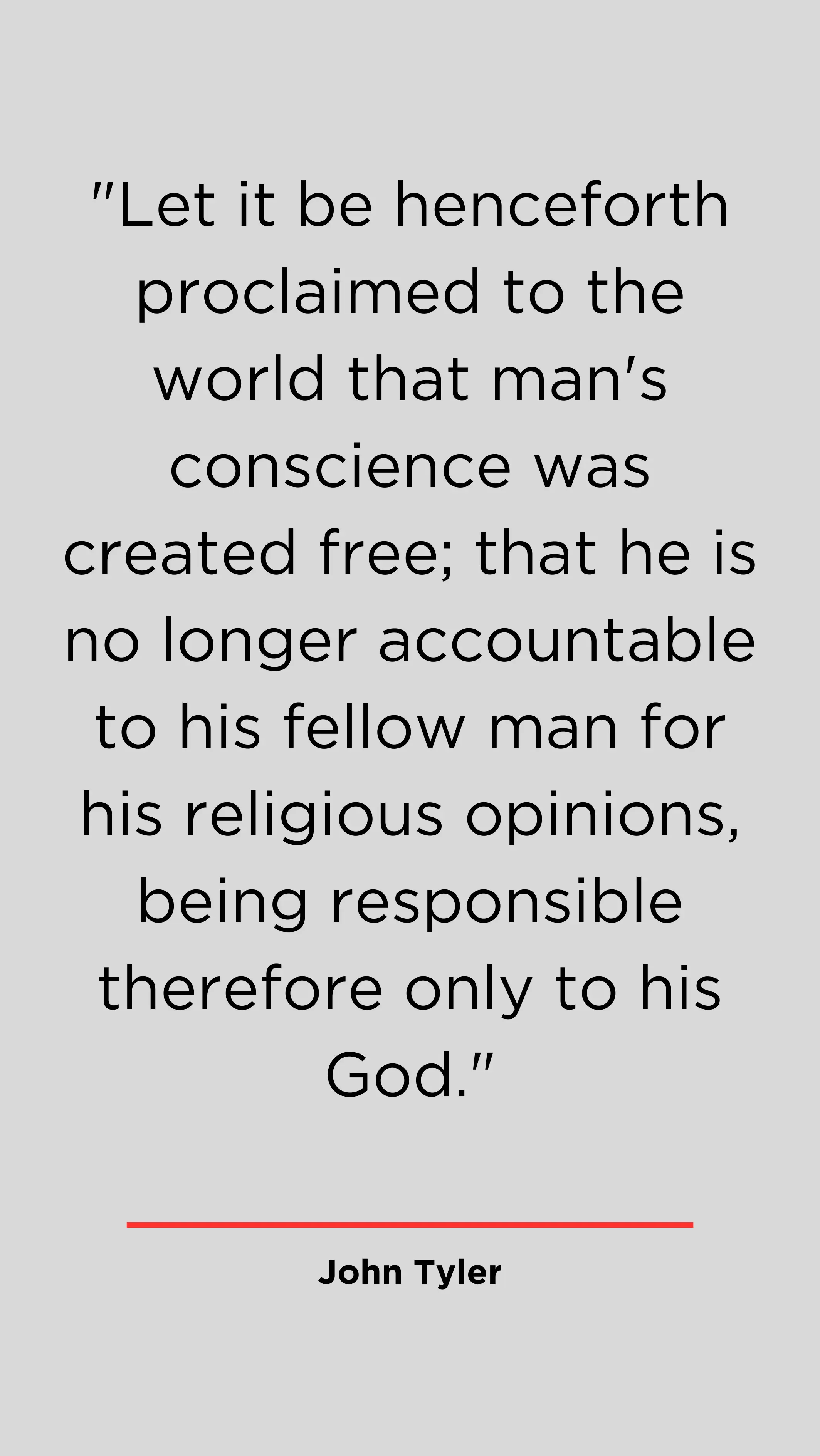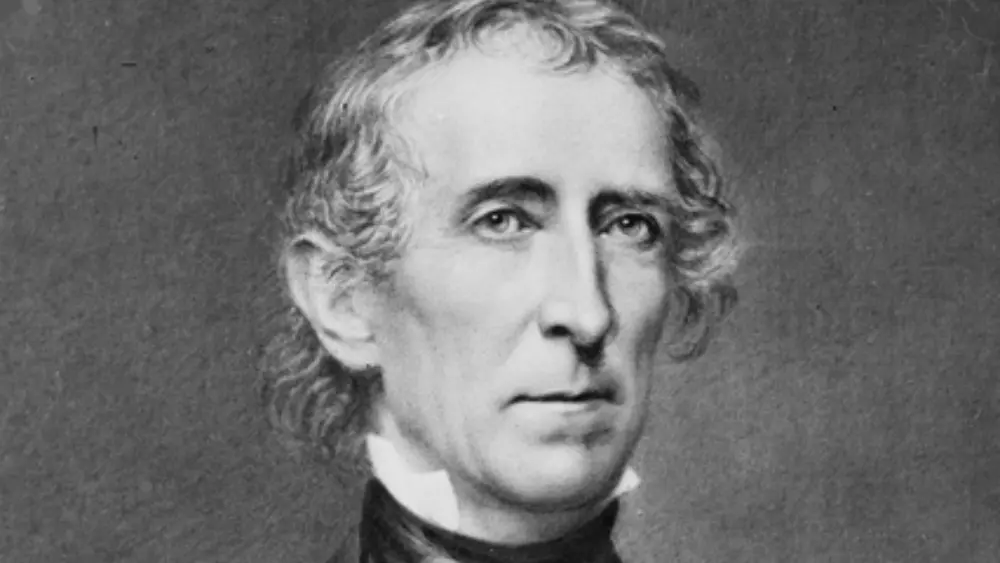John Tyler, the tenth president of the United States, played a significant role in shaping the nation’s military and foreign policy during a pivotal period in the mid-19th century. As a leader faced with complex challenges, Tyler’s decisions and approach to military matters left a lasting impact on the evolving role of the president in matters of national defense.
Early Life and Political Career: From Virginia to the White House
John Tyler’s early life and political career traced a remarkable journey from the halls of the Virginia House of Delegates to the highest office in the land. Born into a prominent Virginia family on March 29, 1790, in Charles City County, Tyler’s entry into politics marked the beginning of a trajectory that would define his legacy. Serving in the Virginia House of Delegates showcased his commitment to public service and set the stage for his subsequent roles on the national stage.
Tyler’s ascent continued as he moved on to the United States Senate, where he contributed to shaping federal legislation and honed his political skills. However, it was his unexpected elevation to the presidency following the untimely death of President William Henry Harrison that thrust him into a position of unprecedented responsibility. As the nation’s tenth president, Tyler confronted the challenges of leading a divided country during a pivotal moment in American history, leaving a lasting impact on the presidency and the evolving story of the United States.
John Tyler: Statesmanship and Constitutional Interpretation
John Tyler’s commitment to states’ rights and a strict interpretation of the Constitution emerged as defining elements of his statesmanship. In his early political career, notably during his time in the Virginia House of Delegates and the United States Senate, Tyler championed the idea that the federal government’s powers should be limited, with a preference for delegating authority to individual states. This commitment to states’ rights and a decentralized government reflected the political philosophy prevalent among many Southern leaders of his time.
As the tenth president of the United States, Tyler’s interpretation of the Constitution influenced key decisions, including his stance on bill vetoing and his handling of military matters. Tyler’s presidency became a testing ground for his constitutional convictions, revealing a leader who sought to uphold the principles he had long advocated, even in the face of the complex challenges of national leadership.
Presidential Authority: Navigating a Unique Path
John Tyler’s ascent to the presidency in 1841 signaled a unique and challenging chapter in American political history. Unlike his predecessors, who had faced the presidency through the death of the incumbent, Tyler’s presidency was distinct in that he insisted on fully assuming the powers and responsibilities of the office. This set a crucial precedent, establishing the understanding that a vice president, upon the death of a president, becomes the legitimate and complete holder of the executive authority.
This assertion of presidential authority faced resistance and controversy, as some questioned the legitimacy of Tyler’s claim to the full powers of the presidency. However, Tyler’s commitment to the principle of presidential succession and his insistence on being recognized as the legitimate president contributed to shaping the future understanding of the transfer of executive power. In navigating this unique path, Tyler demonstrated a commitment to the constitutional framework and principles that would influence the presidency’s dynamics for generations to come.
John Tyler: Asserting Presidential Power
John Tyler’s presidency was characterized by his assertiveness in wielding presidential power, setting a precedent that would influence future administrations. His determination to fully exercise the executive authority, despite initial skepticism and opposition, showcased his commitment to upholding the principles of the Constitution. Tyler’s approach challenged the prevailing notion that a vice president should serve in a purely caretaker capacity upon the death of a president. Instead, he asserted that the vice president should assume the full role and responsibilities of the presidency.
Tyler’s stance on presidential power had a lasting impact on the evolving understanding of executive authority. It contributed to the acknowledgment that a vice president inheriting the presidency should be recognized as the legitimate and complete holder of the highest office. This assertion of presidential power by Tyler played a crucial role in shaping the constitutional framework surrounding the transfer of executive power, solidifying his place as a trailblazer in the history of the American presidency.
Military Decision-Making: The Webster-Ashburton Treaty and Foreign Relations
John Tyler’s presidency encountered significant diplomatic challenges, prominently seen in the border dispute between the United States and Canada. In addressing this issue, Tyler demonstrated his adept diplomatic skills and engaged in the negotiation of the Webster-Ashburton Treaty in 1842. This treaty, negotiated with British diplomat Alexander Baring, settled various disputes between the two nations, including the contested border in Maine. The agreement also addressed issues related to trade, extradition, and the suppression of the international slave trade.
The successful resolution of the Webster-Ashburton negotiations highlighted Tyler’s commitment to diplomatic solutions and showcased his influence on military matters. By averting potential conflicts through diplomatic channels, Tyler contributed to the maintenance of peaceful relations between the United States and Britain during his presidency. His strategic handling of international affairs demonstrated a nuanced approach to military decision-making, emphasizing the importance of negotiation and diplomacy in resolving complex geopolitical issues.
John Tyler: Diplomatic Solutions and National Security
John Tyler’s steadfast commitment to diplomatic solutions marked his presidency as a means of preserving national security. Faced with challenges, particularly the border dispute with Canada, Tyler opted for negotiation over military confrontation. The successful conclusion of the Webster-Ashburton Treaty in 1842 exemplified Tyler’s diplomatic prowess and his belief in resolving disputes through dialogue and compromise. By prioritizing diplomatic solutions, Tyler aimed to safeguard the nation’s security without resorting to armed conflicts, reflecting a strategic and measured approach to international relations.
Tyler’s preference for diplomatic means aligned with his broader vision of maintaining peace and security for the United States. His administration’s pursuit of negotiated settlements emphasized the importance of fostering stable relationships with other nations to ensure the well-being and security of the American people. Tyler’s diplomatic initiatives underscored the idea that preserving national security involves not only military strength but also skilled negotiation and strategic engagement on the international stage.
The Annexation of Texas: A Controversial Decision
John Tyler’s decision to annex Texas in 1845 marked a pivotal moment in U.S. history, with far-reaching consequences for the nation’s territorial expansion. The annexation was driven by various factors, including the desire to extend the institution of slavery into new territories and to solidify the United States’ presence in the Southwest. However, this decision was not without controversy, as it heightened sectional tensions and strained relations with Mexico, which considered Texas its own territory.
The annexation of Texas set the stage for complex military and diplomatic challenges during Tyler’s presidency. The territorial expansion further exacerbated tensions between the Northern and Southern states over the issue of slavery, ultimately contributing to the lead-up to the Mexican-American War. The annexation also strained U.S.-Mexican relations, ultimately leading to military conflicts and shaping the broader geopolitical landscape of North America. Tyler’s decision to pursue the annexation of Texas, while driven by various motives, had profound and enduring implications for the nation’s internal divisions and its relationships with neighboring countries.
John Tyler: Expanding the Nation and Military Implications
John Tyler’s push to annex Texas in 1845 significantly expanded the territorial footprint of the United States, contributing to the nation’s westward expansion. However, the annexation exacerbated existing tensions between the Northern and Southern states, primarily revolving around the contentious issue of slavery. The inclusion of Texas as a slave state intensified the sectional divide, setting the stage for the unruly events that would lead to the American Civil War.
The military implications of Tyler’s decision to annex Texas became evident in the years that followed. The expansionist move heightened tensions not only domestically but also internationally, particularly with Mexico, which viewed Texas as part of its territory. The annexation played a pivotal role in the unfolding events that eventually led to the Mexican-American War (1846-1848), a conflict with significant military repercussions for both the United States and Mexico. Thus, Tyler’s pursuit of territorial expansion had far-reaching consequences, shaping the nation’s internal conflicts and influencing its military engagements in the years to come.

Legacy and Historical Perspectives: A President’s Impact on Military Policy
John Tyler’s impact on the presidency, particularly in shaping the relationship between the Commander-in-Chief and military policy, marks his legacy. His insistence on fully exercising presidential powers, even amid initial controversy, set a precedent that influenced future presidents and their approach to executive authority in military matters. Tyler’s diplomatic solutions to border disputes, as seen in the Webster-Ashburton Treaty, reflected his commitment to avoiding military conflicts when possible, showcasing a nuanced approach to national security.
While Tyler’s presidency is often overshadowed by the broader historical context leading to the Civil War, his contributions to the evolution of presidential authority and his diplomatic handling of military challenges offer valuable insights into the complexities of leadership during a pivotal period in American history. Historians continue to assess Tyler’s presidency for its lasting impact on the presidency’s role in military decision-making and the delicate balance between diplomacy and national security.










